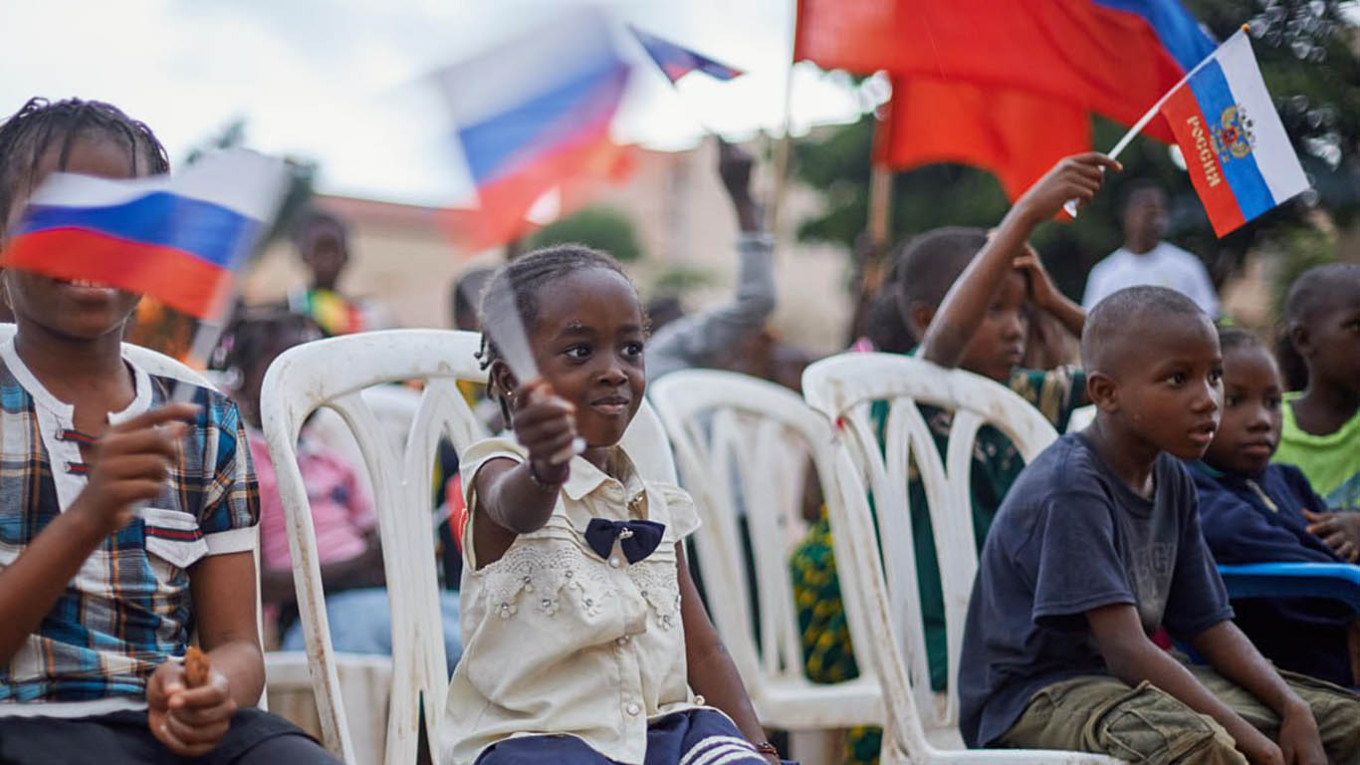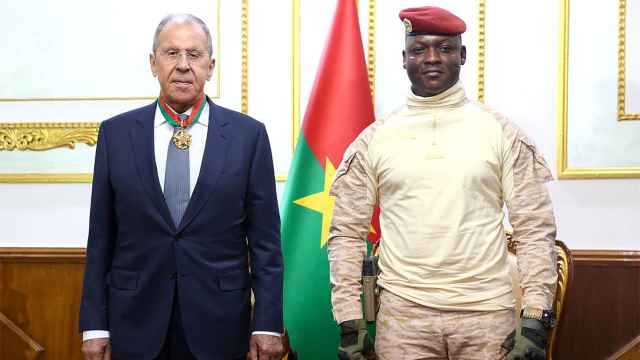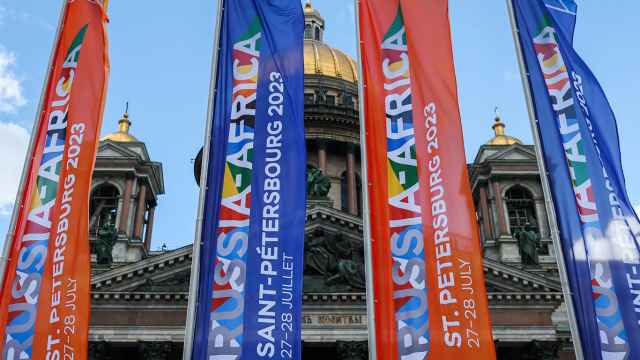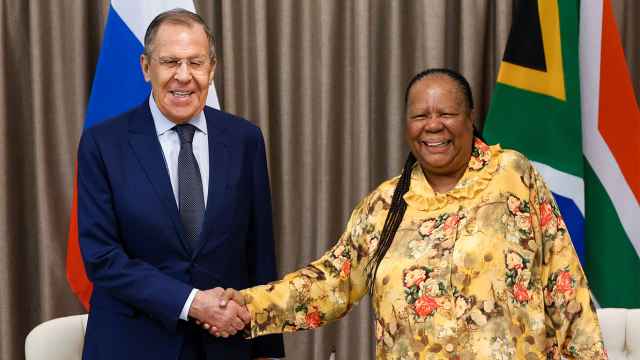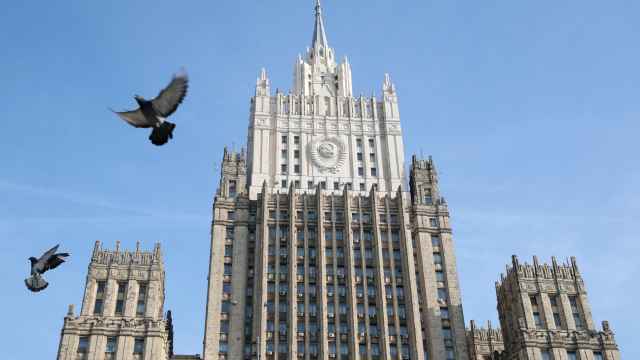The curtains were drawn, the chairs were set and a projector was lowered. More than 30 people gathered in the crowded room and a video started to play.
It told a story Moscow has recounted for years: about the “return” of Crimea to Russia in 2014, about how many locals supported this annexation and how the peninsula is now a desirable tourist destination.
For many in the room, the politics of Russia’s conflict with Ukraine had little relevance to everyday life. But at this local affiliate of a cultural agency known as Russian House in the capital of Mali, a country in West Africa, the important thing was that people come away with the Kremlin’s view of the issue.
As Russia’s full-scale invasion of Ukraine drags on through its fourth year, Moscow is increasingly looking to win allies and garner support in non-Western countries.
The center of this effort is Africa, where more than a dozen so-called Russian Houses have been established in major cities in recent years, a Moscow Times review of press releases, social media posts and pro-Russian media found.
These institutions are a key element of Russia’s diplomatic and cultural outreach to non-Western nations, an effort that critics claim amounts to spreading pro-Russian propaganda.
“The upsurge in Russian Houses we’re seeing in recent years has to be understood within this broader strategic effort in which Russia is engaged,” Joseph Siegle, a senior research associate at the University of Maryland’s Center for International and Security Studies, told The Moscow Times.
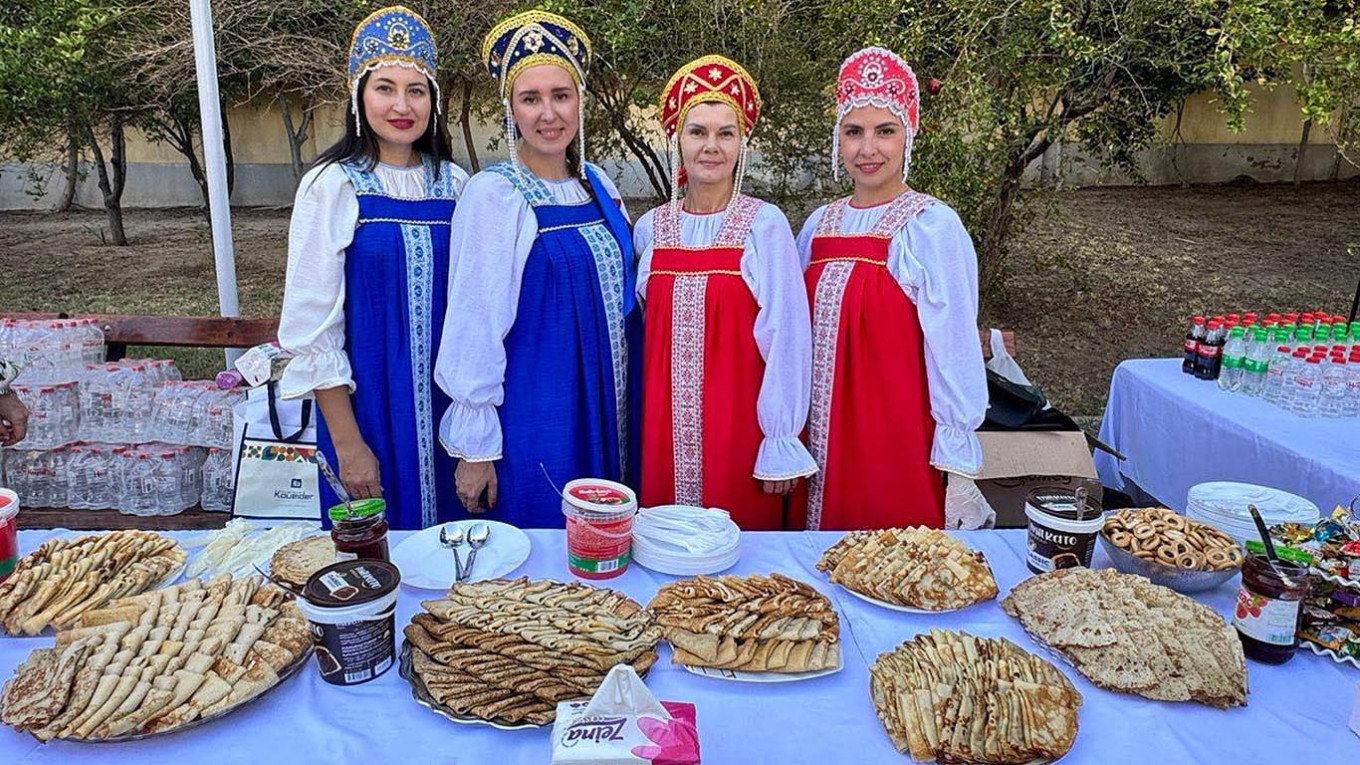
At the Russia-Africa Expo in October, the head of Rossotrudnichestvo, Russia’s cultural agency that oversees the program, said the organization was looking to expand and had “signed agreements” for 14 Russian Houses in African countries.
The Moscow Times found evidence that both official and so-called “partner” Russian Houses are currently operating or soon to open in at least 22 African countries. None of these countries’ Washington embassies responded to requests for comment.
Many of them have their origin in Soviet-era cultural outreach programs.
“Many times, they’re housed in exactly the same buildings that they were back in the Cold War,” said Ivan Klyszcz, a research fellow at the International Center for Defense and Security in Tallinn, Estonia.
Often, these institutions were used to show off national successes, a goal “which is still kind of in the background of all Russian, let's say, public relations and public diplomacy messaging, especially through these venues,” Klyszcz added.
Unsurprisingly, some of the most developed Russian Houses are found in the major cities of historical allies like Egypt and Tanzania.
But the establishment of a Russian culture center can also be an indication of warming ties.
Recent years have seen a flurry of agreements with countries in the Sahel like Burkina Faso, Mali and Chad, and sub-Saharan countries like Equatorial Guinea and the Central African Republic.
Yevgeniya Tikhonova, the head of a Russian House in Burkina Faso’s capital Ouagadougou, told The Washington Post that the organization’s mission is “to show that Russians are not aggressors but here to help and be hospitable.” She claimed that the organization is privately financed.
Burkina Faso, like other states in the Sahel, made a foreign policy U-turn when a military coup toppled the pro-France government in late 2022. Russia stepped in to fill the void, agreeing to provide humanitarian and military assistance.
In Equatorial Guinea, the announcement that a new partner Russian House had been established in late 2024 was preceded by reports that the Kremlin had sent up to 200 military advisers to the country. They were reportedly training presidential guards of Teodoro Obiang Nguema Mbasogo, the West African nation’s long-serving authoritarian leader.
“Russia isn't trying to gain influence through traditional state craft: investing more, trading more, even in terms of conventional security cooperation,” said Siegle. “It's using asymmetric tools to try to punch above its weight.”
“And so in that sense, Russia has been successful because it has gained influence,” he added.
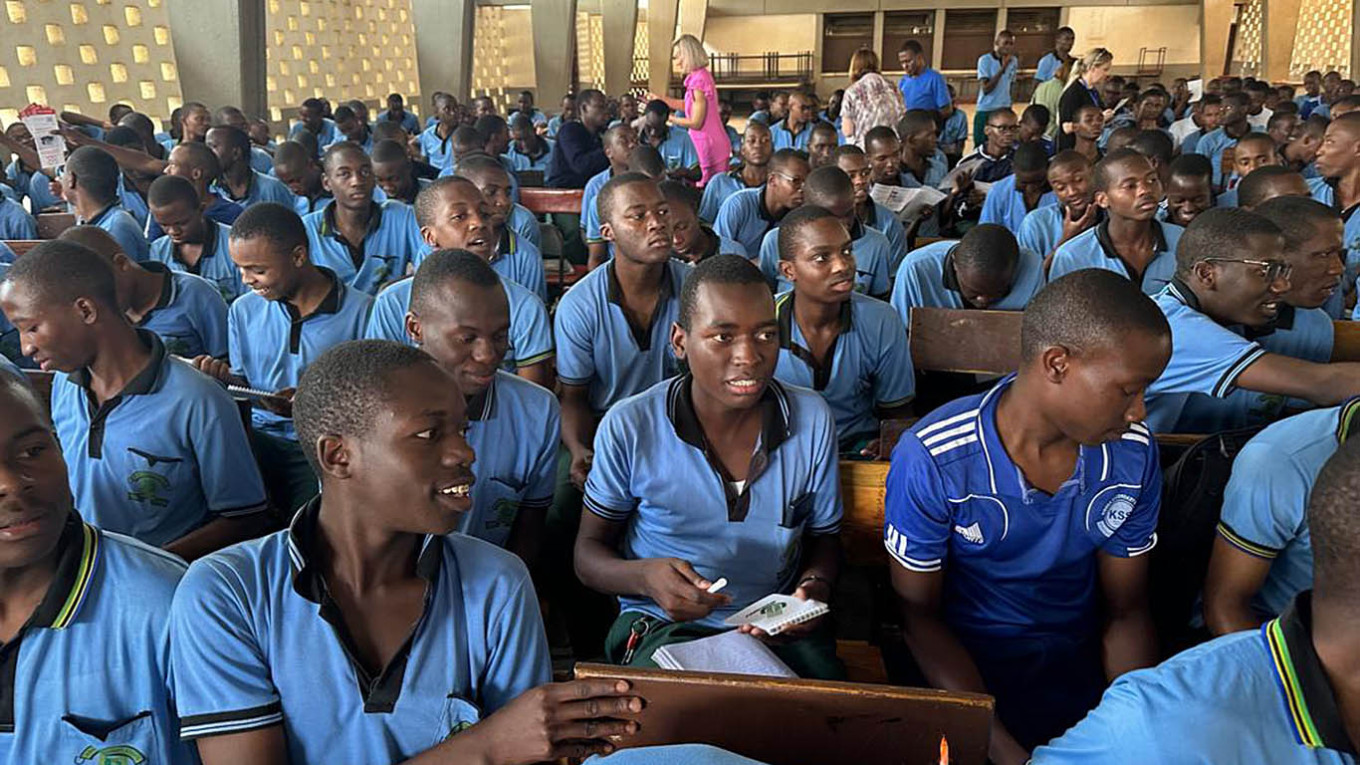
While Moscow looks to woo allies with military and political support, experts told The Moscow Times that Russian Houses offer a different kind of incentive.
The concept of Russian House — a venue to advance a nation’s cultural profile abroad — has analogs in other countries. China has the Confucius Institute, Britain has the British Council and Germany has the Goethe-Institut. Each organization operates hundreds of centers.
In comparison, Russian House has a modest footprint, with Rossotrudnichestvo claiming that it operates 87 “foreign missions” in 71 countries.
And while the function of its cultural centers can be to spread a Russian narrative on current events, that does not always appear to be the goal.
Rossotrudnichestvo says that its main mission is improving “Russia’s humanitarian influence in the world.”
Publicly available materials indicate that this is accomplished largely by hosting language classes, organizing events about Russian literature and history and supporting the arts.
The Russian House in Alexandria, Egypt, regularly holds musical and theater performances.
In Tunisia last year, 400 local students participated in an exhibition on science and robotics.
Many centers regularly organize chess tournaments.
But perhaps the most appealing feature of the cultural centers is providing guidance on studying in Russia — often with the help of scholarships.
This month, Yevgeny Primakov, the head of Rossotrudnichestvo, announced that the government would fund more than 5,000 African students to attend university in Russia.
According to Siegle, the opportunity for educational opportunities is an especially salient motivator for locals to engage with the organization.
“For Africa, where young people face so limited opportunities for education, scholarships and educational opportunities are very welcome,” he said. “I think those have been very genuinely, positively received in Africa.”
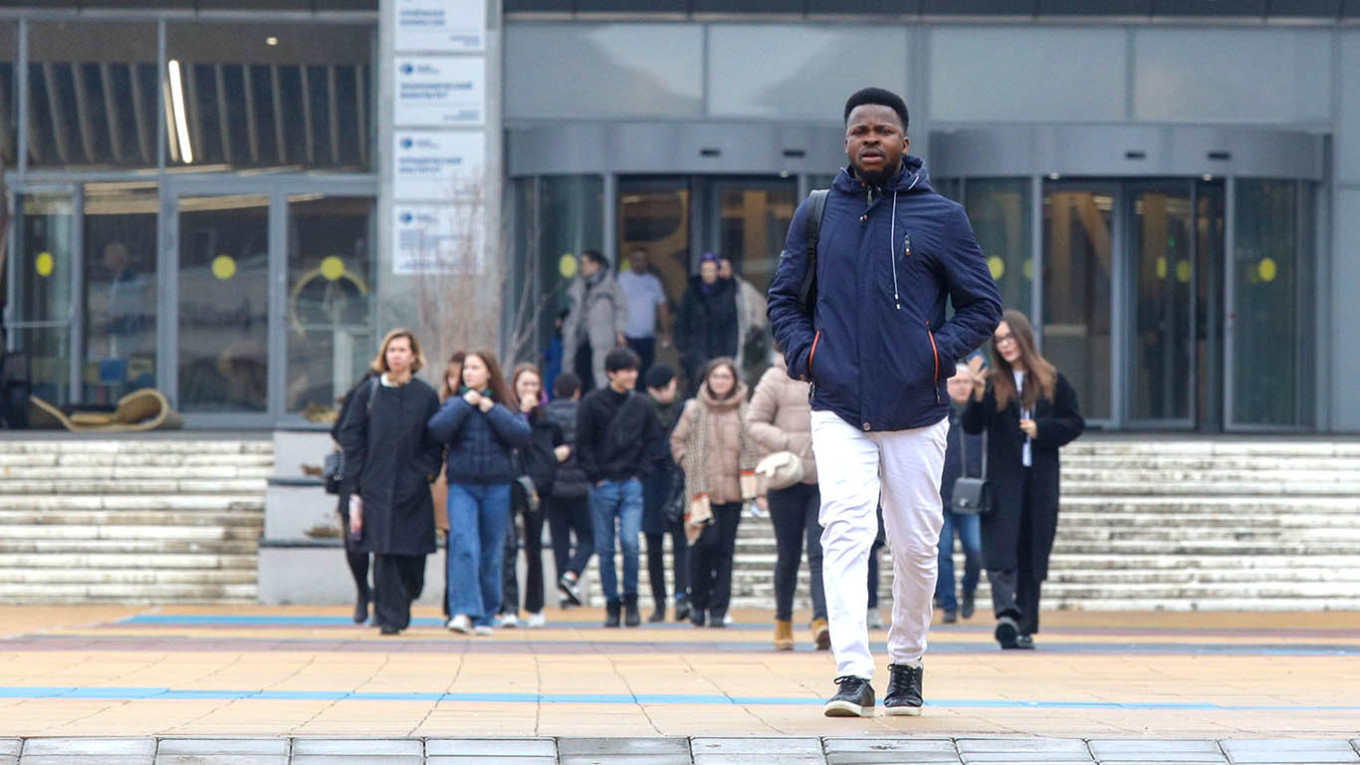
Efforts to attract young Africans to Russia have also attracted criticism from some analysts who claim that cultural and diplomatic outreach are promoting job placements related to Russia’s war effort.
Philani Mthembu, director of the Institute for Global Dialogue in Pretoria, South Africa, told The Moscow Times that people from the region are drawn to Russia for various reasons.
Some look fondly on their country’s historical ties with the Soviet Union, which positioned itself as an ally of decolonization in Africa. Others respect Russia's perceived strength on the international stage and that, largely due to the full-scale invasion of Ukraine, it remains a global player.
For Mthembu, the surprise over Russia’s deftness in making new inroads reflects inaccurate assumptions from officials in the West when it comes to dealing with African counterparts.
In a recent discussion, Mthembu recalled a member of the European Parliament asking: “‘Why would anyone have any interest in Russia? Russia is a dictatorship, it's not a sophisticated economy,’ and all of this kind of stuff.”
Mthembu retorted that this was the official’s “blind spot.”
“To think that [Russia] would be of no interest to people who grow up on a continent where their states do not exercise full sovereignty over their territories, where people call for more role of the state because they simply do not feel the presence of the state…”
He left the thought unfinished.
“In other parts of the world,” he concluded, “it’s quite different.”
A Message from The Moscow Times:
Dear readers,
We are facing unprecedented challenges. Russia's Prosecutor General's Office has designated The Moscow Times as an "undesirable" organization, criminalizing our work and putting our staff at risk of prosecution. This follows our earlier unjust labeling as a "foreign agent."
These actions are direct attempts to silence independent journalism in Russia. The authorities claim our work "discredits the decisions of the Russian leadership." We see things differently: we strive to provide accurate, unbiased reporting on Russia.
We, the journalists of The Moscow Times, refuse to be silenced. But to continue our work, we need your help.
Your support, no matter how small, makes a world of difference. If you can, please support us monthly starting from just $2. It's quick to set up, and every contribution makes a significant impact.
By supporting The Moscow Times, you're defending open, independent journalism in the face of repression. Thank you for standing with us.
Remind me later.



